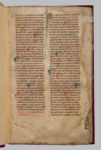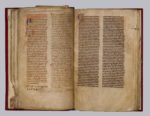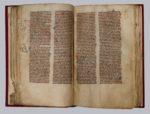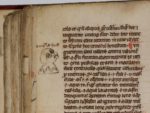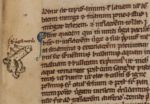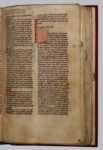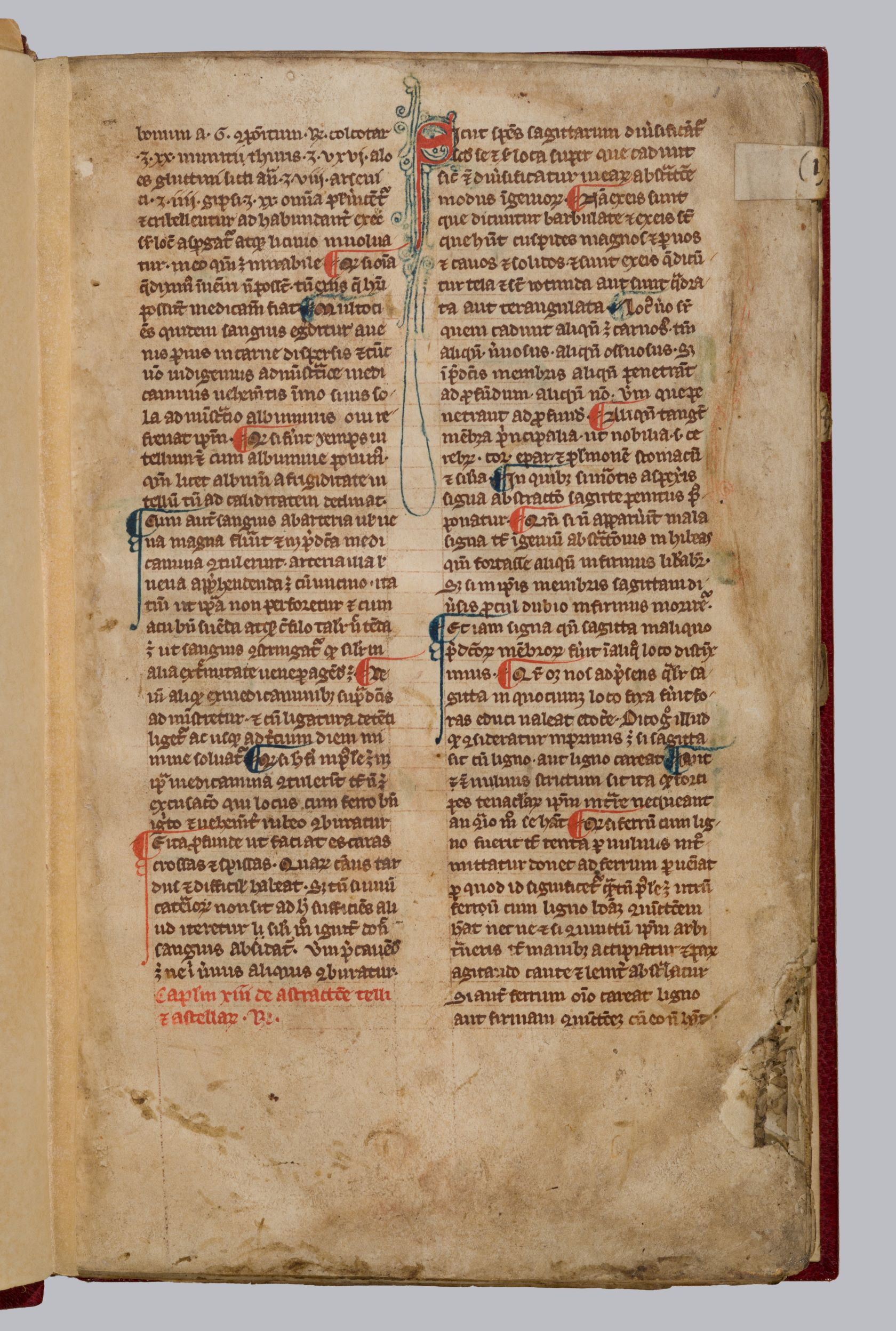
Medical texts, late 13th–early 14th century [MS26]
England
Manuscript on parchment, ff. ii+215+iv, Bound in crushed red morocco over pasteboard, by Katherine Adams 1909–12 (25.4 x 16 cm)
The manuscript includes seventeen texts on surgery, anatomy and prognosis, plus one on the medicinal properties of certain animals. Numbered vellum tabs indicate the beginning of eight of the texts, making them easier to find. Many of the texts were originally written by 12th– and 13th-century physicians from the Salernitan school of medicine, including Trota of Salerno, Johannes de Sancto Paulo, and Matthaeus Platearius. Other authors include Bruno Longobucco, Pseudo Hippocrates, and Roger de Barone. The manuscript was copied in England and at least five different hands can be identified. All of the texts are written in Latin, except for one Norman-French verse on the diseases of birds (fols 69r–72v).
A curious feature of this manuscript are the 14th– or 15th-century marginalia, drawn by two different hands. Most of them accompany the Trotula, a collection of three texts about women’s medicine: the ‘Conditions of Women’, ‘Treatment of Women’, and ‘Women’s Cosmetics’. Only the second is written by Trota of Salerno (after whom the Trotula is named), a female physician who was active in southern Italy in the 12th century. While many of the drawings are grotesque, some serve the practical function of indicating what is in the accompanying text. Next to a remedy for teeth that have been loosened by the cold, for example, is a face with elongated tusks. Some are also comical; next to a remedy for swelling of the male genitals is a penis, which through the addition of fins and tiny feet also appears as a strange aquatic creature.
Literature: Edward Bernard, Catalogi librorum manuscriptorum Angliae et Hiberniae in unum collecti, Vol. 2 (Oxford, 1697), p. 31, no. 1380; Neil R. Ker and Alan J. Piper, Medieval Manuscripts in British Libraries, Volume IV: Paisley–York (Oxford, 1969), pp. 619–21; Paul Yeats-Edwards, Winchester College (Warden and Fellows’ Library) Medieval Manuscript Collection: Brief History and Catalogue (London, 1978), p. 7; Monica Green, Making Women’s Medicine Masculine: The Rise of Male Authority in Pre-Modern Gynaecology (Oxford, 2008), pp. 230–37.
Provenance: Unknown, at Winchester College by 1634.
Location: Fellows’ Library
